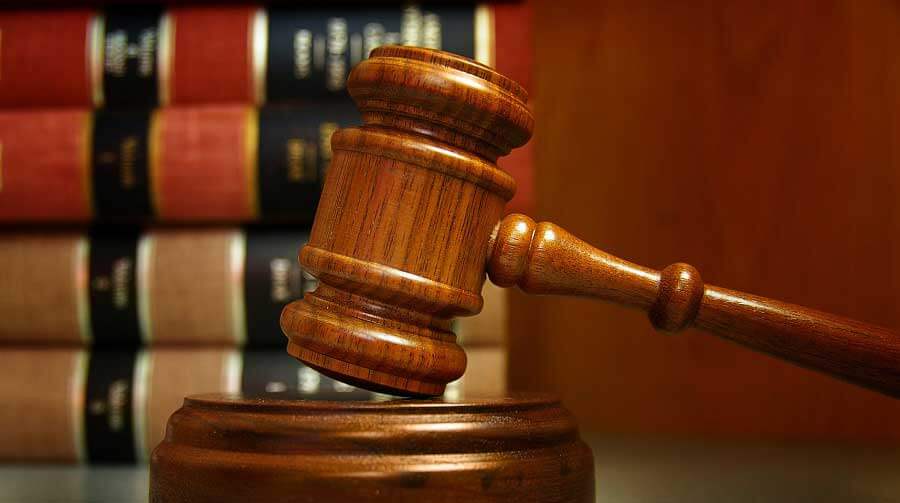As the nation is gearing up to witness the outcome of numerous election petitions at various tribunals in the next six months, judges that are shortlisted to preside over such time-bound cases will have to adjourn other pending matters before them at regular courts, lawyers say.
Nigeria held its 2023 general election between February 25 and March 18 with several political party candidates vowing to challenge the results declared by the Independent National Electoral Commission, INEC.
Advertisement
THE WHISTLER reports that petitions have been entered at various tribunals, including at the Presidential Election Petition Court, Abuja.
As enshrined in Section 132(7 & 8) of the Electoral Act 2022, “An election petition shall be filed within 21 days after the date of the declaration of result of the elections” while “The Tribunal shall deliver a judgment in writing within 180 days(6 months) from the date of the filing of the petition.”
The Chief Justice of Nigeria (CJN), Olukayode Ariwoola, had late last year appointed about 257 judges that would serve on Election Petitions Tribunals across the country.
While most Tribunals including the Presidential Election Petitions Court will be establishing their panel, THE WHISTLER gathered that judges would be shortlisted from State High Courts, the FCT High Court, the Federal High Court, the National Industrial Court, and the Court of Appeal.
Advertisement
The implication is that these judges may not be available to attend to other cases in the next 180 days during which they would be expected to conclude the election petition cases.
— Nigeria Needs Tribunal For Election Cases —
Reacting to the development, a lawyer and Executive Director of Citizens Advocacy for Social and Economic Rights (CASER), Frank Tietie, told THE WHISTLER in a phone interview that election petitions have always taken a very heavy toll on the regular processes of the court because the judges that man the tribunals are usually regular judges who have many cases pending in their courts.
“And whenever they are attending to election petitions by way of presiding over tribunals, cases in their dockets suffer; lawyers often have to wait by taking long adjournments before their cases can be heard.
“That is not very good for the country’s judiciary which has been described as inefficient because of the undue delays associated with the prosecution of cases,” Tietie added.
Advertisement
He advised that one “possible solution is not only to increase the number of judges but to have a standing Tribunal for election cases,” but lamented that the Election Act 2022 only supports the creation of an election tribunal within a specific time after the elections.
Tietie further noted that such tribunals could affect litigants because based on legal practice, once a judge has started a case, he must be the one that must end the case because if another judge takes over, he would have to start all over again taking fresh witnesses and statements.
“That means that once a case has been started by a judge who has now been posted to serve in an election petition, that effectively means that he will be away for a period of over 6 months from the court and that is a very costly delay to the interest of litigants.
“Sometimes, even though let us acknowledge that it does not take quite a number of judges from a jurisdiction, the thing is, for those few judges that constitute the panels, those courts are usually affected.
“The fact that the tribunal are many for Governorship, state house of assembly, senate and House of Representatives, you will find a multiplicity of tribunals involving at least a minimum of a panel of six judges in a state.
“And that has a very strong implication when it comes to the court being manned by those judges and being that those judges are usually very experienced judges, they are the ones who handle high profile and important cases that will now suffer for a period of six months. So we are going to grapple with the problem for a long time,” Tietie said.
Advertisement
Narrating his personal experience, he recalled a number of times his own cases had been adjourned indefinitely due to election petitions in which a presiding judge is assigned to preside over.
“Oh yes. Many times. We’ve had cases where we had to just adjourn sine die(indefinitely) because a judge has been either sent to preside or participate in election Tribunal. The Experience is that of helplessness where you have to wait,” Tietie said.
— Litigants Can Apply For Reassignment —
Meanwhile, human rights activist and lawyer, Marshall Abubakar, told THE WHISTLER that litigants whose matters are before the shortlisted judges should quickly apply to Chief Judges for reassignment of their cases so as to avoid long delays.
“It (election petition) does, quite maximally, and the impact is huge. 257 judges of various high courts across the Federation were drafted by the NJC to sit over the about 436 petitions filed by 10 different political parties and their candidates, challenging the various elections results as announced by INEC.
“These judges are drawn from the bench, across Nigeria, the primary victims of this exercise are the cases these justices were presiding over before they were so drafted.
“It means hearing/ proceedings in those cases would be put on hold until after the judges complete their election petition duty assignments. I would advise litigants whose cases are urgent to apply for reassignment of those cases to judges who were not saddled with election tribunal duties,” Marshall stated in his reply to our correspondent.



